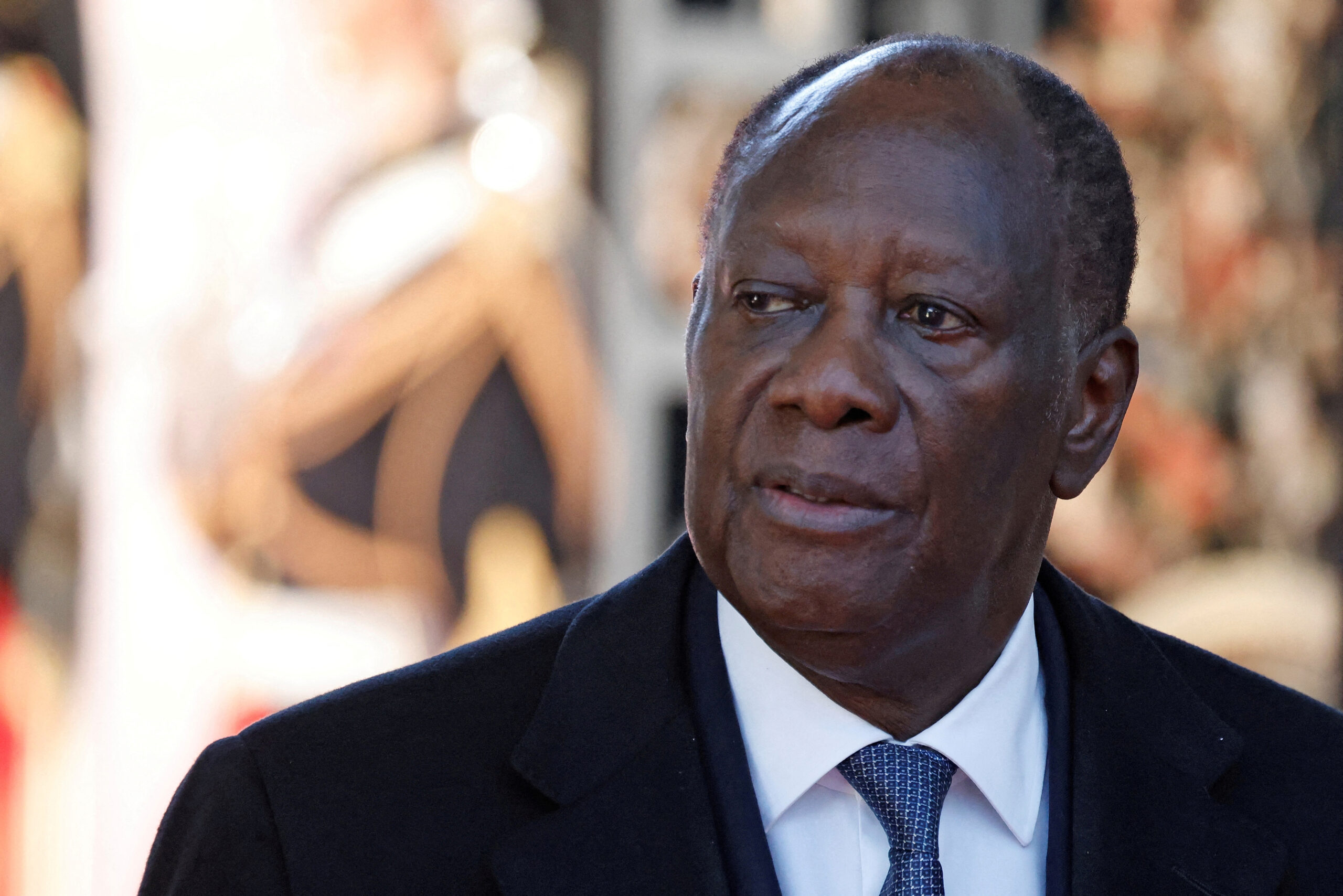
FILE PHOTO: Ivory Coast's President Alassane Ouattara arrives to attend the opening session of the 19th Summit of the Francophonie at the Grand Palais in Paris, France October 5, 2024. Ludovic Marin/Pool via REUTERS/File Photo
Ivory Coast’s President Alassane Ouattara departed Abidjan on Wednesday, August 13, 2025, for a stay in France, accompanied by Prime Minister Robert Mambé and his chief of staff, Fidèle Sarassoro.
The trip coincides with the start of the government’s recess and comes amid mounting political tension ahead of the October presidential election.
Nominated by his ruling RHDP party, Ouattara is seeking a fourth term in office for the election scheduled on October 25, 2025. His candidacy has sparked controversy, with opposition parties denouncing the bid as unconstitutional and warning of potential political unrest.
The electoral process is currently underway, with citizen sponsorship—an essential condition for eligibility—running from July 1 until August 26, 2025.
Meanwhile, several prominent political figures, including former President Laurent Gbagbo and PDCI leader Tidjane Thiam, remain excluded from the electoral roll.
Former Prime Minister Guillaume Soro, currently in exile, and former youth leader Charles Blé Goudé are also barred from participation, further intensifying political tensions.
Opposition groups have repeatedly called for the reinstatement of these figures, arguing that their exclusion undermines the credibility and inclusiveness of the upcoming election.
Public demonstrations and legal challenges have been reported in recent months, reflecting the heightened stakes of the political contest.
The president’s trip to France, while officially framed as a routine diplomatic and personal visit, occurs against this backdrop of electoral uncertainty. Analysts suggest that Ouattara’s presence abroad during the recess may influence both political negotiations and strategic planning ahead of the October vote.
As Ivory Coast approaches one of its most closely watched elections in recent years, the political climate remains fragile. The administration faces the dual challenge of ensuring security and managing tensions while navigating legal and constitutional debates surrounding candidacy eligibility and electoral fairness.



